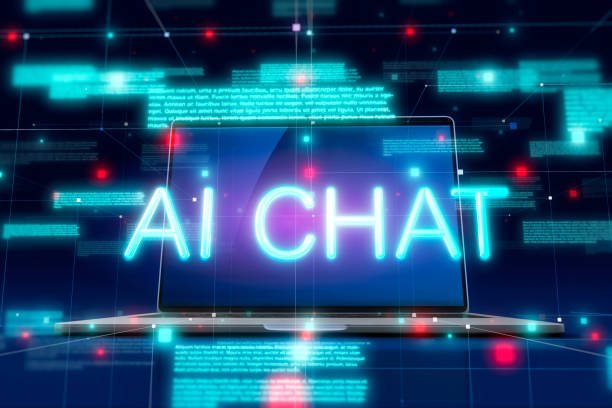What is an AI Robot and What are its Applications?
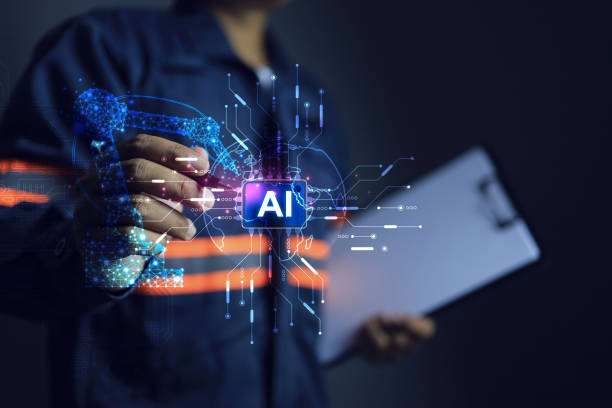
#AI_Robot is a computer program designed with #Artificial_Intelligence algorithms to perform tasks that typically require human intelligence.
These tasks can include learning, problem-solving, decision-making, and natural language understanding.
AI robots are used in a wide range of industries, from customer service to healthcare and manufacturing.
One of the main applications of AI robots is improving customer experience.
Many companies use chatbots to answer customer questions and provide 24/7 support.
These robots can quickly answer common questions and resolve simple issues, which saves time and cost for companies.
In the healthcare sector, AI robots can assist doctors in diagnosing diseases, providing personalized treatments, and even performing surgeries.
Surgical robots can operate with very high precision and reduce the risk of error.
In the manufacturing industry, AI robots are used for automating production processes, quality control, and predicting equipment failures.
These robots can work continuously and tirelessly, leading to increased productivity and reduced costs.
#AI_Robot identifies patterns using existing data and makes more optimal decisions.
Artificial intelligence enables the robot to improve over time and deliver better performance.
Tired of your company’s website not getting the visibility it deserves and losing potential customers? Solve this problem forever with professional and effective website design by RASAWEB!
✅ Increase brand credibility and earn customer trust
✅ Attract targeted sales leads
⚡ Contact us now for a free consultation!
Types of AI Robots: A Comprehensive Review

AI robots can be categorized into different types based on their capabilities and operational methods.
A common categorization includes Reactive Machines, Limited Memory robots, Theory of Mind robots, and Self-Aware robots.
Reactive machines are the simplest type of AI robot and only react based on current inputs.
These robots have no memory and cannot use past experiences.
An example of this type of robot is the chess-playing robot Deep Blue, which defeated Garry Kasparov in 1997.
Limited Memory robots can store limited information in their memory and use this information for decision-making.
These robots can identify patterns and act based on their past experiences.
Self-driving cars are an example of this type of robot.
Theory of Mind robots are more complex and can understand the mental states of others (such as beliefs, goals, and emotions).
These robots can perform better in social interactions and manage more complex relationships.
Self-Aware robots are the most advanced type of AI robot and possess awareness of themselves and their surroundings.
These robots can make independent decisions and act creatively.
A fully self-aware robot has not yet been developed, but researchers are working on these types of robots.
AI robots in each category have different capabilities and offer various applications.
Advantages and Disadvantages of Using AI Robots
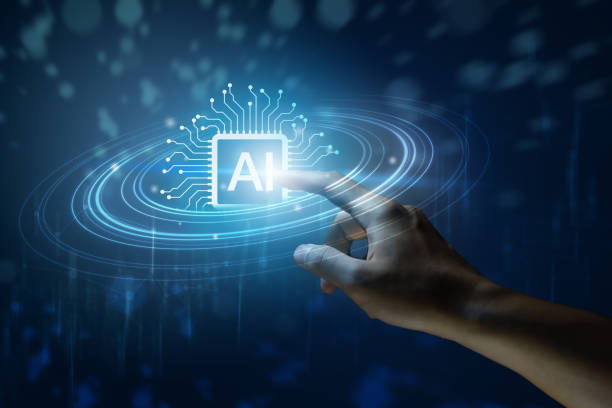
The use of #AI_Robot offers many advantages, including increased productivity, reduced costs, improved accuracy, and better service delivery.
Robots can work continuously and tirelessly, which leads to increased production and reduced task completion times.
Furthermore, robots can perform tasks that are dangerous or difficult for humans.
However, the use of AI robots also has disadvantages.
One of the main drawbacks is the high cost of developing and implementing robots.
Additionally, robots may lead to job displacement for humans, especially in industries where automation processes are expanding.
Another concern relates to the ethical issues surrounding the use of AI robots.
For example, decisions made by robots might lead to unintended or discriminatory outcomes.
Therefore, it is essential that the use of AI robots is done carefully and considering all its pros and cons.
To benefit from the advantages of robots and mitigate their disadvantages, there is a need to develop appropriate laws and regulations, and to train the workforce to work with and manage these robots.
AI robots can help improve human lives, but they must be used responsibly and with awareness of their potential risks.
Below is a table that provides a comparative review of the advantages and disadvantages of using AI robots:
| Advantages | Disadvantages |
|---|---|
| Increased Productivity | High Development and Implementation Cost |
| Reduced Costs | Job Displacement for Humans |
| Improved Accuracy | Ethical Issues |
| Better Service Delivery | Complexity and Need for Expertise |
| Performing Dangerous Tasks | Potential for Errors and Flaws |
Challenges in Developing and Implementing AI Robots
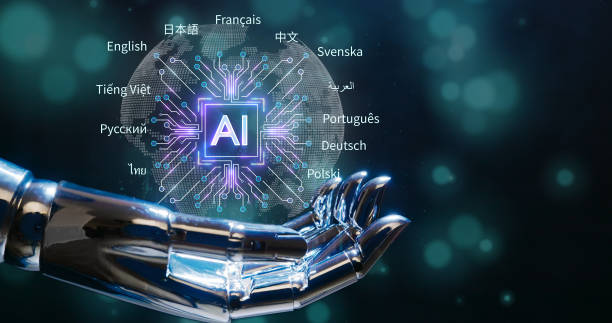
The development and implementation of AI robots come with numerous challenges.
One of the main challenges is the scarcity of training data.
Training robots requires a large volume of high-quality data.
Collecting and preparing this data can be time-consuming and costly.
Another challenge is the complexity of AI algorithms.
Designing and implementing these algorithms demands high expertise and technical knowledge.
Furthermore, evaluating and improving robot performance is also a significant challenge.
Robots must be tested in various environments, and their performance continuously evaluated.
Another challenge involves issues related to security and privacy.
Robots may have access to sensitive information, and this data must be protected against cyber-attacks.
Also, it must be ensured that robots respect individuals’ privacy and do not collect or use their personal information without authorization.
To overcome these challenges, collaboration among researchers, industrialists, and policymakers is essential.
Researchers must continue to develop new AI algorithms and improve existing ones.
Industrialists should invest in the development and implementation of robots.
Policymakers must enact laws and regulations that govern the responsible use of robots, considering all their pros and cons.
By addressing these challenges, AI robots can be more widely used and contribute to improving human lives.
Are you bothered by losing customers who have visited your site to make a purchase?
RASAWEB is your specialized solution for having a successful online store.
✅ Significant increase in your online sales
✅ Building trust and professional branding with customers⚡ Get free consultation from RASAWEB experts!
The Future of AI Robots: Prospects and Possibilities
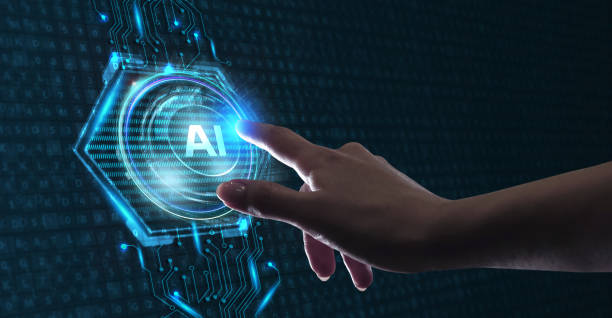
The future of AI robots looks very bright.
With continuous advancements in artificial intelligence, it is expected that robots will soon be able to perform more complex tasks and be used in more industries.
One important prospect is the development of self-aware robots.
These robots can make independent decisions and act creatively.
Self-aware robots can help humans solve complex problems and provide innovative solutions.
Another prospect is the integration of robots with the Internet of Things (IoT).
By connecting robots to the internet network, they can collect and process more information and communicate with other devices.
This can lead to the creation of intelligent systems and the complete automation of processes.
Furthermore, it is expected that robots will play a more significant role in education in the future.
Educational robots can help students learn various concepts and provide personalized instruction.
Robots can assist teachers with administrative tasks, allowing more time for interaction with students.
AI robots could become one of the most important technologies of the 21st century, impacting human lives in all aspects.
However, it is important to note that the development and use of robots must be done responsibly and considering all their positive and negative aspects.
AI Robots and Industrial Automation: A Great Transformation
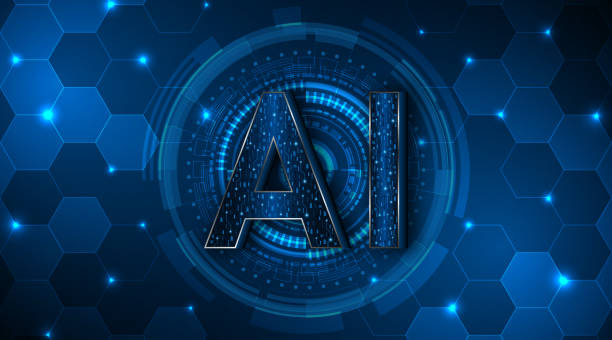
#AI_Robots and industrial automation are two interconnected concepts that have brought about immense transformations in industry in recent years.
Industrial automation refers to the use of machinery and computer systems to perform tasks previously done by humans.
AI robots can play a significant role in industrial automation, as they are capable of performing complex and non-routine tasks.
One of the primary applications of AI robots in industrial automation is quality control.
Robots can inspect products using cameras and sensors to identify defects.
This can lead to reduced waste and improved product quality.
AI robots can also be used in assembling parts and performing complex manufacturing operations.
These robots can operate with very high precision and increase production speed.
Finally, AI robots can assist in supply chain management and optimizing logistics processes.
These robots can analyze data to identify patterns and make more optimal decisions.
Artificial intelligence in industrial automation can lead to increased productivity, reduced costs, and improved product quality.
However, it is important to note that industrial automation may lead to job displacement for humans.
Therefore, policies must be adopted to help workers learn new skills and find employment in new roles.
Examining the Role of AI Robots in Daily Life
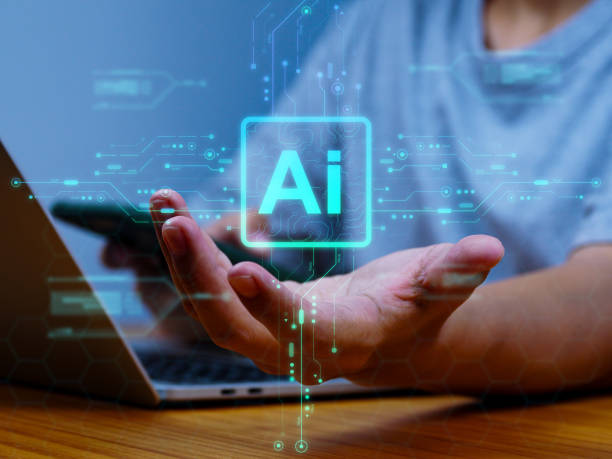
AI robots are increasingly playing a role in our daily lives.
From voice assistants like Siri and Alexa to robot vacuum cleaners and chatbots, AI robots are changing the way we live and work.
One common application of AI robots in daily life is customer service.
Many companies use chatbots to answer customer questions and provide 24/7 support.
These robots can quickly answer common questions and resolve simple issues, which saves time and cost for companies.
AI robots can also help us at home.
Robot vacuum cleaners can clean floors, and robotic lawnmowers can cut grass.
Voice assistants can help us with various tasks such as playing music, setting alarms, and controlling smart devices.
AI robots can also assist us in the healthcare sector.
Medical robots can help nurses care for patients, and surgical robots can operate with very high precision.
AI robots in daily life can help us with various tasks and make our lives easier.
However, it is important to note that the use of robots must be done responsibly and considering all their pros and cons.
Below is a table showing the applications of AI robots in daily life:
| Field | Applications |
|---|---|
| Customer Services | Chatbots for answering questions and providing support |
| Home | Robot vacuum cleaners, robotic lawnmowers, voice assistants |
| Healthcare | Medical robots, surgical robots |
| Transportation | Self-driving cars, drones |
| Education | Educational robots |
Ethical Aspects of Developing and Using AI Robots
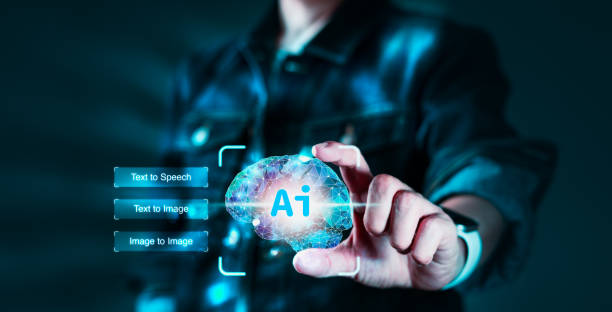
The development and use of #AI_Robots raise important ethical issues.
One of the main issues is accountability.
If an AI robot makes a mistake and causes damage, who is responsible? Is it the robot’s manufacturer, the robot’s user, or the robot itself? These questions still lack definitive answers and require further discussion and consideration.
Another issue is discrimination.
AI robots may make discriminatory decisions based on their training data.
For example, a hiring robot might unintentionally reject female candidates or minorities.
To prevent discrimination, it is necessary to carefully review the robots’ training data and design AI algorithms in a way that prevents discrimination.
The third issue is privacy.
AI robots may have access to sensitive information, and this data must be protected against cyber-attacks.
Also, it must be ensured that robots respect individuals’ privacy and do not collect or use their personal information without authorization.
By adhering to ethical considerations, AI robots can contribute to improving human lives.
To this end, there is a need to formulate appropriate laws and regulations and to train specialists and users of robots.
Did you know that 94% of users’ first impression of a business is related to its website design? With professional corporate website design by **RASAWEB**, transform this first impression into an opportunity for growth.
✅ Attract more customers and increase sales
✅ Build credibility and trust in the audience’s perception⚡ Get free website design consultation!
Skills Required for Working with AI Robots

Working with AI robots requires various skills.
One of the primary skills is programming knowledge.
Developing and implementing robots necessitates knowledge of programming languages such as Python, Java, and C++.
Another skill is knowledge of mathematics and statistics.
Designing AI algorithms requires knowledge of mathematics and statistics.
The third skill is machine learning knowledge.
Training robots requires knowledge of machine learning algorithms.
In addition to these technical skills, soft skills are also required.
One important soft skill is problem-solving.
Working with robots demands the ability to solve complex problems and provide innovative solutions.
Another skill is critical thinking.
Evaluating robot performance and identifying their weaknesses requires critical thinking.
The third skill is teamwork.
Developing and implementing robots requires collaboration with other specialists.
By acquiring these skills, one can work effectively with AI robots and benefit from them.
To gain these skills, one can attend training courses, study relevant books and articles, and participate in practical projects.
Soft skills, alongside hard skills, are key to success in working with AI robots.
Career Future and Opportunities Related to AI Robots
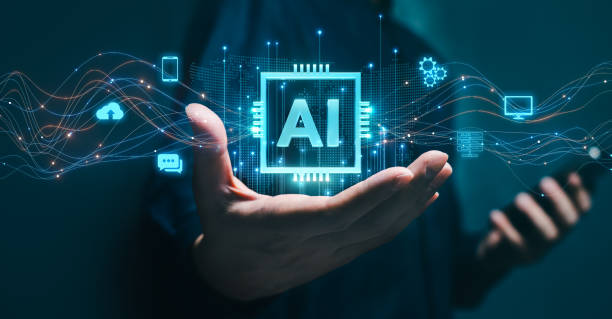
With the widespread use of #AI_Robots, new job opportunities are emerging.
One of the in-demand professions is an AI engineer.
AI engineers are responsible for designing, developing, and implementing robots and AI algorithms.
Another profession is a data scientist.
Data scientists are responsible for collecting, analyzing data, and using this data to train robots.
The third profession is an automation specialist.
Automation specialists are responsible for designing and implementing industrial automation systems that utilize robots.
In addition to these professions, other job opportunities exist in the field of robotics and artificial intelligence.
For example, robotics technicians are responsible for repairing and maintaining robots.
AI consultants help companies select and implement AI solutions.
AI researchers develop new artificial intelligence algorithms.
Given its high potential, AI robots offer many job opportunities for individuals with appropriate skills.
To benefit from these opportunities, individuals must acquire the necessary skills and prepare themselves for future jobs.
AI engineering will be one of the most popular fields of study in the future.
Frequently Asked Questions
| Question | Answer |
|---|---|
| What is an AI Robot? | An AI Robot is a machine capable of understanding its environment, reasoning, learning, and making decisions to perform tasks autonomously. |
| What is the difference between regular robots and AI robots? | Regular robots perform repetitive tasks based on prior programming, while AI robots can learn from experience, interact dynamically with their environment, and even behave in ways that resemble human intelligence. |
| What are the main applications of AI robots? | They are used in industries (manufacturing, assembly), medicine (surgery, diagnosis), services (customer support, domestic), exploration (space, underwater), and many other fields. |
| What technologies are used in building AI robots? | Machine Learning, Computer Vision, Natural Language Processing, Deep Learning, and Robotics are among the key technologies. |
| Can AI robots have emotions? | Currently, robots do not have emotions in the human sense. They can identify emotions and react to them, but they do not experience emotions themselves. |
| What are the main challenges in developing AI robots? | Safety, reliability, ethics, autonomy, adaptability to complex environments, and natural human interaction are among the significant challenges. |
| How are AI robots trained? | They are typically trained using large volumes of data, machine learning algorithms, and deep learning to identify patterns and make decisions. |
| Examples of AI robots in daily life? | Smart robotic vacuum cleaners, customer support chatbots, self-driving cars, and surgical robots in hospitals. |
| Are AI robots a threat to human jobs? | Some repetitive jobs may become automated, but simultaneously, robots can increase productivity and create new jobs in the development, maintenance, and supervision of these systems. |
| How is the future of AI robots predicted? | They are expected to become smarter, more autonomous, and capable of performing more complex tasks, engaging in closer interaction with humans in various environments. |
And Other Services from RASAWEB Advertising Agency in the Field of Advertising
- Smart Direct Marketing: Designed for businesses seeking digital branding through SEO-driven content strategy.
- Smart SEO: Designed for businesses looking to increase sales through Google Ads management.
- Smart Advertising Campaign: A combination of creativity and technology to increase click-through rates through custom programming.
- Smart Advertorials: A new service for improving SEO ranking through key page optimization.
- Smart Advertising Campaign: Revolutionize customer acquisition with the help of key page optimization.
And over a hundred other services in the field of internet advertising, advertising consulting, and organizational solutions
Internet Advertising | Advertising Strategy | Advertorials
Sources
Comprehensive Guide to AI Robots on DigiatoIntroduction to AI Robots on ZoomitLatest News on Robotics and AI Technology on ISNAArtificial Intelligence and Robots on Tabnak
? For business prosperity and visibility in the digital world, RASAWEB Afarin is your trusted partner. From modern UI website design to comprehensive digital marketing strategies, we are by your side.
For consultation and information about our services, contact RASAWEB Afarin experts.
📍 Tehran, Mirdamad Street, next to Central Bank, Southern Kazeroun Alley, Ramin Alley, No. 6

